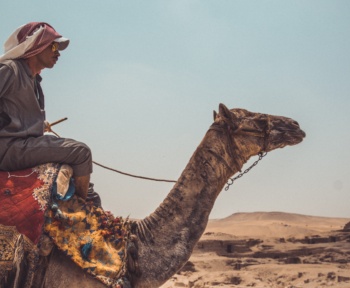Saudi: Living in Saudi
Living in Saudi Arabia is a unique experience, to say the least. Saudi Arabia is the birthplace of Islam, the religion which dictates almost everything in life. But for those who wish to live in Saudi Arabia, there is plenty to appreciate about the culture, customs and way of life. From stunning desert landscapes to bustling city centers, and everywhere in between; Saudi Arabia has it all.
Getting to Know Saudi Arabia
Saudi Arabia is the largest country in the Middle East, and it neighbors many other countries such as Kuwait, Jordan, Iraq, Bahrain, and the United Arab Emirates. It has a population of more than 30 million and its capital city is Riyadh. The official language is Arabic while English is widely spoken in larger cities. Dress is conservatively, and women are expected to cover their faces and hair. The Islamic calendar is usually regarded as the official religious calendar of the country, with the Gregorian calendar used primarily for business and commercial purposes.
The Culture of Saudi Arabia
The culture of Saudi Arabia is rooted in the Islamic faith, with Islamic customs and traditions governing much of everyday life. Religion and faith play a large role in the daily life of citizens, with practices such as prayer, fasting, and pilgrimage being common. Many aspects of entertainment and leisure are forbidden, such as music, television shows, and alcohol; however, there are some exceptions to this in more cosmopolitan areas.
The Climate in Saudi Arabia
The climate in Saudi Arabia can generally be described as a hot and dry desert climate. Summers are long, hot and dry, while winters can be mild in more southern areas. Rainfall is fairly sparse throughout Saudi Arabia, with snow appearing only in the highest mountainous regions.
Economy & Employment in Saudi Arabia
The economy of Saudi Arabia is heavily petroleum-based, with oil accounting for more than 85% of its exports and nearly 40% of the country’s GDP. Saudi Arabia is also the world’s largest oil producing nation. Other major industries in Saudi Arabia include construction, petrochemicals, manufacturing and finance.
In terms of employment, foreign nationals are allowed to work in Saudi Arabia under certain conditions. One must either apply for a Labor Visa from their native country or work within the framework of the Kingdom’s Free Trade Agreement. Once this is done, the potential employee must have their contract presented at the branch of the Ministry of Labor in their respective city.
Daily Life in Saudi Arabia
Daily life in Saudi Arabia is slightly different from the Western world. Women are expected to dress modestly in public, and men and women are prohibited from interacting in public, and women must also be accompanied by a male guardian in public. Alcohol and gambling are strictly forbidden. The educational system in Saudi Arabia is strongly rooted in the Islamic religion and Arabic language, and tuition fees are free at university levels.
Most recreation and leisure activities take place within a private sphere. Socializing is mostly through family and friends, although there are some public events such as concerts, museums, and festivals.
Food and cuisine in Saudi Arabia are varied, with influences from the Middle East, Persia, India, and Europe. The main staples are wheat, rice and lamb, but other dishes include dates, kebabs, shawarma, shish taouk, and manti. Saudi Arabian desserts are traditional and include baklava, maamoul, and knafeh. Saudi Arabian cuisine is typically served with a variety of breads and hummus.
Transportation in Saudi Arabia includes public transportation and private cars. Maining cities have public bus services and taxis, as well as the high-speed Haramain Railway. The capital city of Riyadh is served by Metro Al Masar, and a few cities have light rail systems. Saudi Arabia also has an extensive network of highways which connect the major cities and provinces of the kingdom.
Accommodations and housing in Saudi Arabia are generally more expensive than in other Middle Eastern countries, especially in larger cities. Short-term housing is available in hotels and serviced apartments, while long-term housing is usually cheaper in furnished apartments or villas for rent.
Safety and security in Saudi Arabia are generally good, with the country’s low rate of violent crime making it one of the safest countries in the region. It is important, however, to be aware of local laws and customs and to respect them.
Q1: What is the official language in Saudi Arabia?
A1: The official language is Arabic, but English is widely spoken in many cities.
Q2: What are the primary industries in Saudi Arabia?
A2: The primary industries include oil, construction, petrochemicals, manufacturing, and finance.
Q3: Is there public transportation in Saudi Arabia?
A3: Yes, there are public bus services, taxis, and light rail systems in many cities. The capital city of Riyadh has its own Metro system.
Q4: Is housing and accommodation expensive in Saudi Arabia?
A4: Yes, housing and accommodation can be more expensive than in other Middle Eastern countries, especially in large cities.
Q5: Is it safe to travel to Saudi Arabia?
A5: Yes, Saudi Arabia is generally considered to be safe with a low rate of violent crime. It is important to be aware of local laws and customs and to respect them.
Saudi Arabia is an intriguing country with a combination of traditional and modern practices. Its cultural values are rooted in the Islamic faith, and the climate is arid and often hot. The economy is heavily oil-based, with a few other main industries such as construction, petrochemicals, and manufacturing. Saudis live a conservative lifestyle, with strict social customs, limited entertainment, and detailed dress codes.
At the end of the day, living in Saudi Arabia is worth the challenge for anyone who wishes to experience it. Though there are very different practices and norms, it has plenty of unique experiences that one can enjoy.


